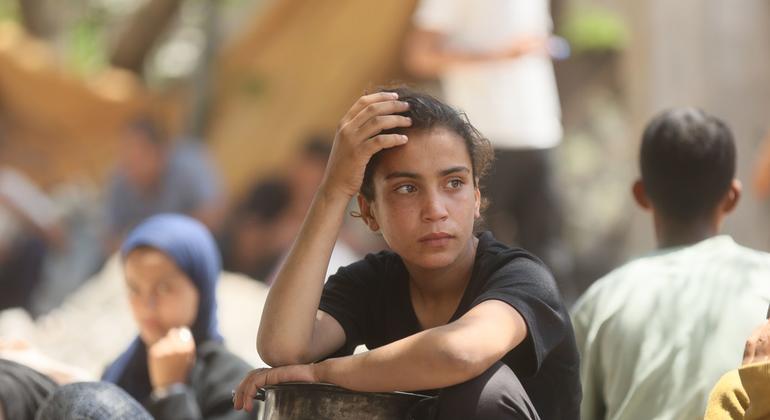The disorders began on July 12 when mutual abductions turned into armed conflict between the groups of Druze and the Bedouin tribes, attracting the Syrian security forces.
Violence has invaded a spiral, with reports of extrajudicial execution, desecration of corpses and looting. Images have largely circulated on the social media fueled sectarian tensions and disinformation.
Nearly 200,000 displaced
In the presidential press release published on Sunday, the ambassadors said that they were “deeply concerned” by recent fights, which included “mass killings” and led to the internal displacement of some 192,000 people.
The Council “firmly condemns the violence perpetrated against civilians … and calls on all the parties to respect the cease-fire agreement and to ensure the protection of the civilian population”.
The organization of 15 members recalled to all parties of their obligations under human rights and international humanitarian law, highlighting in particular the duty to “respect and protect” all members of medical and humanitarian staff.
The members of the Council urged all the parties to allow “complete, safe, rapid and unhindered humanitarian access to communities affected in the region strongly of Sweida and through Syria, in accordance with the principles of humanity, neutrality, impartiality and independence.
They also underlined the need to ensure the human treatment of all the fighters, including those who went, are injured, detained or laid their arms.
Protection for all
The declaration called on the Syrian interim authorities to protect all Syrians “regardless of ethnicity or religion” and warned that “there can be no significant recovery in Syria without real security and protection for all Syrians”.
The Council welcomed the condemnation by the provisional authorities of violence and their commitment to investigate those responsible, but urged them to guarantee “credible, rapid, transparent, impartial and complete surveys … in accordance with international standards”.
Reaffirming resolutions, including 2254 (2015), the Council reiterated its “strong commitment to sovereignty, independence, unity and territorial integrity of the Syrian Arab Republic” and called on all states to avoid “negative or destructive interference” which could further destabilize the country.
The declaration also recalled the 1974 disengagement agreement and the mandate of the strength of the United Nations Observer of the United Nations (UNDOD) Tmonitoring and patrolling the golan contested on the Syria-Israeli border, urging all the parties to be respected by its terms to maintain calm.
Regarding the threat of terrorism, the Council cited the last report of its team for monitoring analytical support and sanctions, expressing “a great concern concerning the acute threat posed by foreign terrorist fighters” in Syria. He urged the country to make decisive measures against ISIL (Da’esh) and Al-Qaida, in accordance with relevant resolutions.
For the future, the Council has repeated its call to “an inclusive political process, led by Syrian and belonging to Syrian” based on resolution 2254, to protect the rights of all Syrians and allow them to “determine peacefully, independent and democratic their future”.
Originally published at Almouwatin.com







